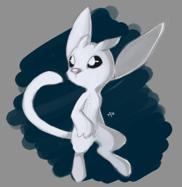IMO a high score is pretty useless if its based on an algorithm that arbitrarily combines multiple statistics heavily influenced by randomness and arbitrary starting conditions.
i think "high score" carries the wrong connotations - "current score" probably conveys the concept better.
weighing the value of stats to determine the score will be difficult. all inventory objects have a quality and value which can be used. large world objects (huts, rafts, bedding, temp shelters, landmarks, etc) do not, but everything in the game can be crafted, so anything can be assigned a value based on tools, parts, skills, and time required. but then comes the less straight forward stuff... how much is a band member worth? a companion? a pet? knowledge of a nearby water source? having a cave or rock shelter under your control? how much is having an alliance with another band worth? the worth of band members, companions, and pets can be based on stats/skills. the value of knowledge of resources and control of natural shelters is a bit more fuzzy.
there will be no randomness involved at all, just look at all the current stats and such and add up a current score.
right now there's only one starting condition - random location - no gear - no skills - nothing. multiple starting scenarios are planned. easier starting conditions would incur a penalty to "current survival score". alternate starts will in effect give you additional gear and skills - making the penalty easy to calculate - make it same as the bonus they get from having that gear and those skills.
that just leaves the difficulty settings as the only remaining "arbitrary starting condition". so it seems to boil down to diff lvl vs current score.
Even if starting conditions were same, assuming this is a sandbox game, success is ultimately subjective, and thus its impossible for you to create a scoring algorithm.
it shouldn't be too hard to come up with an overall "how powerful are you right now" score. but as you say, how much different things should influence that score will have to be a subjective judgement call at best, as opposed to an objective decision. despite that, with a reasonable weighting of the influences, it should at least provide a quick snapshot for the player - even though they may not entriely agree with the weight distributions. i was thinking that a breakdown of how many points for what might address that issue somewhat. then you could see the weights and take the score in that context - "well i only have a score of 900 some odd, but it doesn't give me a lot of credit for" - hmm... it would have to be something subjective, so it cant be an object, stat or skill, the game already defines the relative value of those. that leaves stuff like caves, rock shelters, and knowledge of nearby resources. so "my score is only 900, but it doesn't give me credit for known resources farther than 3 days travel" - the player may think it should be 5 days travel or something. also, i think that by not playing favoriets with respect to the vale of one object or skill to another, especially with respect to combat vs not combat things, will allow one to sandbox away without undue influence on score one way or the other. in the end, all player activities (if successful) will result in an increase in possessions, exp, or temporary stats (sleep, food, water, god relations, etc). everything has a cost in time, skills, tools, and parts. all parts and tools have a basic monetary trading value (trinkets are the "money" in the game). the value of skills can be expressed in terms of the cost in time, tools, parts, and any prerequisite skills. skills with no prerequisites can be express in terms of just the time and parts and tools cost. so just like the ral world, there are only two fundamental commodities: time, and money (trinkets in caveman). so time would be the only real subjective value there. if a skill requires 2 trinkets worth of stuff and four hours to learn, and 1 current survival score point = 1 trinket, how many points is that four hours worth?
Therefore I suggest just make a big page that displays a large variety of statistics of the playthrough. (days survived, grass stomped, fish eaten...) Players can then look at the statistics they care about for comparison.
got this, bit its just small for now: cavemen killed, animals killed, days alive, that's about it so far. full blown stats (number of painted hides crafted, etc) are planned. unlike the sims, bladder is not modeled, so no "dumps taken" stat. <g>.
If a competitive community happens to form around the game, they can come up with their own scoring methods.
yeah - i'm doing this more for the single player's benefit. online stuff wasn't an influence in the idea, although it might fit well. that's why i'm not really looking at this from an online stuff point of view, more just for personal use only - at least to start.
I also suggest you have a few "default" configurations for the starting conditions and settings. If people can just freely change the settings it will be very difficult to not feel like youre not getting the intended experience, or are "cheating" by using too easy settings. Youll also make it easier for the people who want to compare scores, they can just say they played "hard mode" instead of providing the exact configuration they were using.
yeah, the jury is still out on that one. its looking like straight 100% across the board, with either 1% or 5% or 10% for heal time, as the default difficulty setting. maybe 200% hit points, but i'm not so sure about that. 1% heal rate keeps you in the game without too much downtime, just enough. at 100% it takes 6 months to heal up from almost dead. so the sweet spot will probably be somewhere between 1% and 10%. i wanted to keep away from a few preset difficulty levels to avoid the issue of one level too easy and the next too hard: silent hunter 4, top two diff levels. if you could toggle different stuff off you could custom tailor the difficulty like in red baron 2 and other flight sims. BTW, toggling settings affects realism % which affects campaign points earned in red baron 2. so they chose to have difficulty affect score - experience points, actually,







